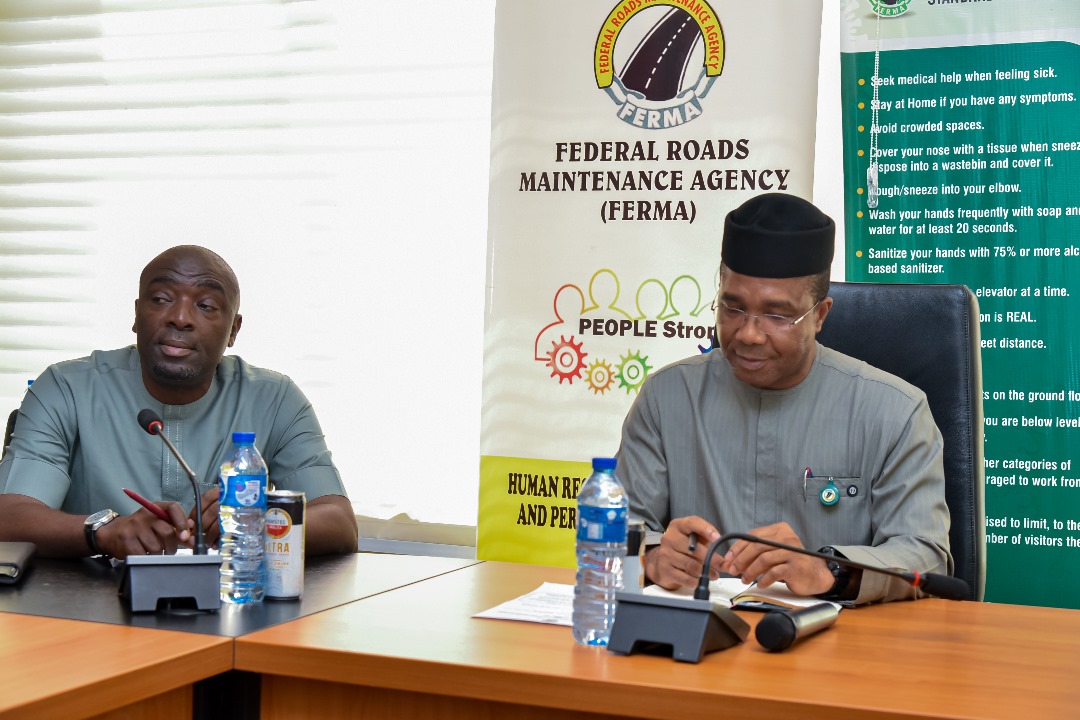306
By Tracy Moses
The House of Representatives Ad-hoc Committee probing the abandonment of awarded federal road projects in Calabar and other parts of the South-South region has summoned the Managing Director of the Federal Road Maintenance Agency (FERMA), Engr. Dr. Chukwuemeka Agbasi, to appear before it and explain the deteriorating condition of the affected roads.
The summons was issued on Thursday during the Committee’s maiden meeting, presided over by its Chairman, Hon. Billy Osawaru, after members expressed dissatisfaction with the submission made by a Director in the agency, Usman Mohammed, who stood in for the FERMA boss.
Lawmakers had grilled the FERMA representative on the agency’s responsibilities, the status of contracts awarded in the region, and details of contractors blacklisted for non-performance, but his explanations failed to satisfy the panel.
Mohammed disclosed that FERMA had awarded 158 road projects in Cross River State between 2010 and 2025, with a cumulative contract value of ₦16,922,442,940.21. He added that documents detailing the progress of the projects had been submitted to the Committee.
However, unsatisfied with the presentation, the Committee resolved that the Managing Director must personally appear to provide detailed clarifications and furnish all supporting documents.
In his opening remarks, Hon. Osawaru reiterated the House’s resolve to uphold transparency, accountability, and efficiency in the execution of public infrastructure projects.
He lamented the appalling state of federal roads in and around Calabar, describing them as an embarrassment and a major obstacle to socioeconomic growth in the region.
“These roads are not just transportation routes,” Osawaru said. “They are critical arteries for trade, social interaction, and development. They connect communities, drive commerce, and support the federal government’s vision for balanced infrastructural development.”
The lawmaker regretted that, despite consistent budgetary allocations and repeated assurances from relevant authorities, many of the road projects remain abandoned or poorly executed.
“This unfortunate situation has inflicted untold hardship on citizens, stifled local economies, isolated communities, and eroded public trust in government promises,” he stated. “That is why this Ad-hoc Committee was set up, to uncover the root causes, identify those responsible, and propose effective remedies.”
Osawaru clarified that the Committee’s objective is not to cast blame but to promote transparency, ensure accountability, and guarantee that public funds are used for the benefit of Nigerians.
He urged his colleagues to approach the task with integrity, patriotism, and a shared sense of purpose, stressing that their diligence would determine the credibility of the Committee’s final report to the House and the Nigerian people.
Acknowledging the potential hurdles ahead, Osawaru mentioned that the Committee might face delays in obtaining critical documents, inconsistencies in project data, overlapping agency functions, and logistical challenges in visiting project sites. Nevertheless, he assured that the panel remains determined to carry out its mandate to the fullest.
“Our ultimate goal,” he said, “is to establish a new culture of accountability in public works—one where contracts are fully executed, funds are judiciously managed, and citizens experience real value through safe, durable, and motorable roads. The people of Cross River and the South-South deserve nothing less.”
He further emphasized that the Committee’s work was a collaborative process, not an adversarial one, involving cooperation between the legislature, executive agencies, and other stakeholders to identify challenges and implement lasting solutions.
“On behalf of the Committee,” Osawaru concluded, “I sincerely appreciate all who honoured our invitation. Your presence today reflects your commitment to national development. Let us engage with openness and patriotism so that history will record that we acted in the best interest of accountability, progress, and the Nigerian people.”



